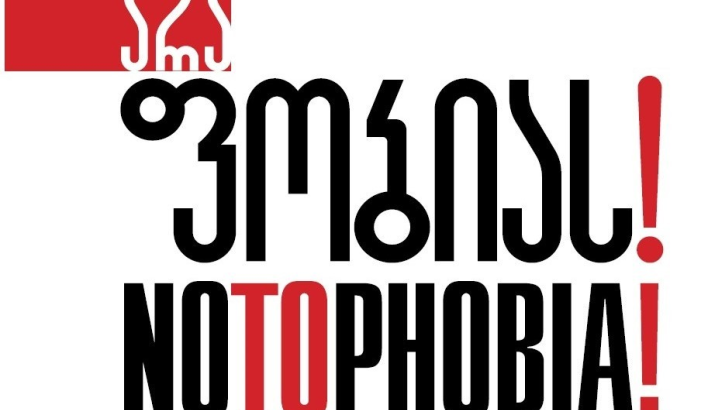
The civil platform "No To Phobia!" echoes the incidents of March 8, 2024, in the municipality of Adigeni and urges law enforcement agencies to swiftly investigate the infringement upon the religious freedom of Muslim believers.
Footage released reveals a mobilization of Orthodox Church clergy and other residents near the property of Imam Merab (Yusuf) Mikeladze in Adigen, with attempts made to invade Imam’s premises and obstruct local Muslims from exercising their freedom of religion. Threats and hateful language emanated from their side, audible in the vicinity. The released footage clearly depicts police presence at the scene, albeit they only intervened to block the path of aggressive individuals. Despite the video evidence suggesting potential criminal activity (under the Criminal Code of Georgia, Article 151 - Threat, Article 155 - Unlawful Interference with the Performance of a Religious Rites; Article 156 - Persecution), no information has been released regarding the initiation of an investigation or the arrest of any individuals involved.
The statement made by the Gamgebeli (Head of Local Administration) of Adigeni, Gocha Kimadze, justifying the restriction of religious freedom for the minority group by labeling it as "provocative for the Christian population," is significant. Both the Public Defender and the State Agency for Religious Affairs have issued statements in response. The agency has urged all parties involved, including the affected Muslims, to adhere to the interests and legislation of Georgia.
Freedom of belief, religion, and conscience is safeguarded by multiple legal frameworks, including the Constitution of Georgia (Article 16), the European Convention on Human Rights (Article 9), and the International Covenant on Civil and Political Rights (Article 18). As defined by the Constitutional Court of Georgia, freedom of belief extends beyond internal convictions and encompasses the right of individuals to openly express their religion or belief through confession, preaching, and adherence to rituals and regulations, whether individually or collectively, in both public and private settings.[1]
Muslims residing in Adigen convened on their private property for prayer, a practice that inherently does not contravene any public interest or infringe upon the rights of others. Consequently, the unfolding events in the municipality of Adigen underscore a clear case of significant interference with religious freedom, devoid of any justification.
In such circumstances, state institutions must uphold their responsibilities and respond effectively to any instances of illegality. However, contrary to this expectation, both central and local government representatives appear to be neglecting their duty to protect human rights and adhere to the mandates outlined in the Constitution of Georgia. Instead of addressing the situation with a focus on protecting human rights, they are attempting to assign equal blame to the Muslim community, thereby exacerbating the situation and framing it as a provocation or conflict, shifting the blame to the religious minority itself. The portrayal of the situation in such a contrasting manner highlights the lack of political will to address and mitigate religious intolerance within the country. The impunity that has been allowed to persist over the years only serves to perpetuate such aggressive actions. This is further exacerbated by the inaction of law enforcement agencies and the misplaced focus of the State Agency for Religious Affairs, which, since its establishment, has prioritized the control of religious institutions over the protection of religious freedom.
It is noteworthy that a similar incident occurred in Adigen Municipality in July 2023, wherein local Orthodox Christians opposed the practice and teaching of Muslim religious rituals. Orthodox clerics arrived at a school building and demanded the cessation of these activities, resulting in a verbal altercation. Despite police presence at the scene, no legal action was taken regarding the incident. Instead, with the involvement of local and central authorities, a "negotiation" occurred between the clergy, leading to concessions demanded from the Muslims. As a result, they vacated the prayer hall and religious school located in their private residence.[2] Once again, the state deemed the issue resolved and failed to address it further.
The civil platform "No To Phobia!" urges:
Georgian Democracy Initiative (GDI)
Tolerance and Diversity Institute (TDI)
The Media Development Foundation (MDF)
Georgia's Reforms Associates (GRASS)
Sapari
Partnership for Human Rights (PHR)
Human Rights Center (HRC)
Tbilisi Pride
Rights Georgia
Civil Society Foundation
[1] The decision of the Constitutional Court of Georgia of December 22, 2011 №1/1/477 in the case „Public Defender of Georgia Against the Parliament of Georgia, II-59.
[2] A special report by the civic platform “No To Phobia!” regarding the the “Equality Policy Amidst Hate Crimes in Georgia”, 2023, p. 26.
